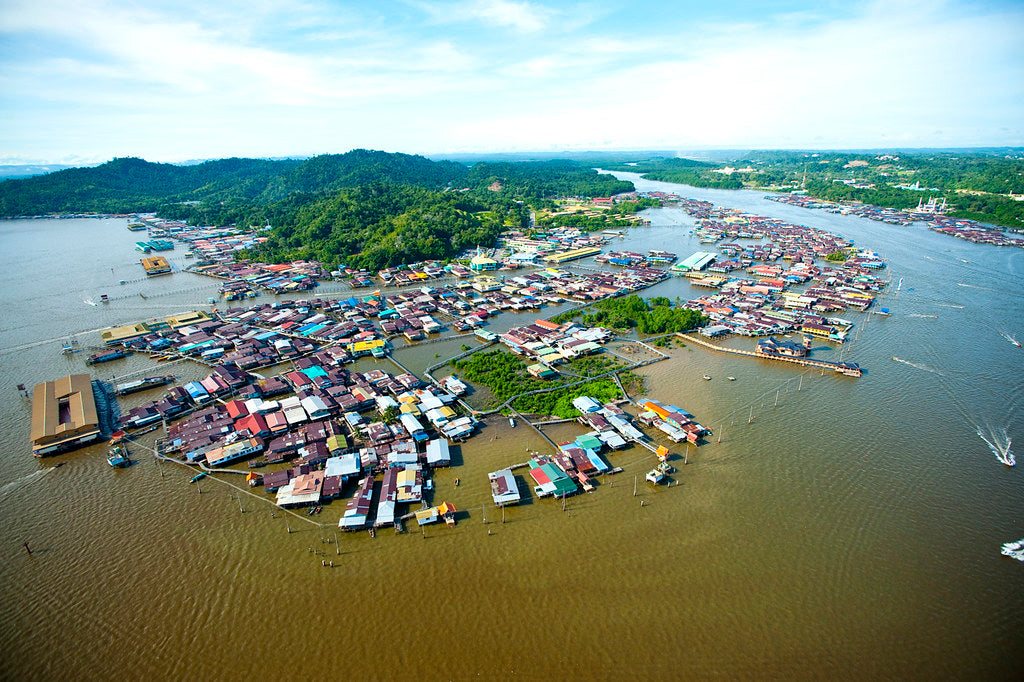
Author Spotlight — Kathrina Mohd Daud
Header photo credit: KIRKLANDPHOTOS
Kathrina Mohd Daud is back with her second novel, The Witch Doctor's Daughter, which was longlisted in the 2021 Epigram Books Fiction Prize (EBFP). Her first novel, The Fisherman King, was shortlisted in the 2020 EBFP.
In The Witch Doctor's Daughter, she brings us back to Brunei's Water Village as she takes us through a journey with Safiyya, a 22-year old who dreams of stepping out of her charlatan's parents' shadow and carving her own path.
Read the interview below to get a behind-the-scene look into how important her culture is to her, how it helped shape her new story, and what's next on her writing checklist.
——————————————
What is The Witch Doctor's Daughter about?
The Witch Doctor's Daughter is set in 1990s Brunei, and is about a young woman named Safiyya, who, at the start of the novel is a little bit aimless, and a little bit frustrated. She knows what she doesn’t want - to turn out like her parents, who treat spiritual and supernatural ailments, sometimes honestly, mostly fraudulently.
To me, the novel is about how Safiyya figures out what she does want – it’s a novel about taking steps, taking conscious actions, about identifying desires, making decisions. About taking ownership of and shaping your own life – and for Safiyya that means leaving home, meeting new people, learning new things, unlearning old ones. All this happens against the backdrop of a Brunei that is in its first decade after independence in 1984, developing fast, ambitious and hopeful.
 Kampong Ayer, Brunei. Photo: Sophie James / Shutterstock.com
Kampong Ayer, Brunei. Photo: Sophie James / Shutterstock.com
In this story, we are brought back to Brunei’s Water Village, a place that you wrote about in your previous novel, The Fisherman King. What was it like to breathe new life into something familiar?
Kampong Ayer, or the Water Village, looms large in the Bruneian cultural landscape. It’s also of tremendous historical significance. Writing about it feels less like breathing new life into something familiar and more like working to capture some of its depth and richness and history on the page.
Early on, we are introduced to the longhouse and it becomes Safiyya’s “home away from home”. It is there she finds the missing links to develop into the person she always longed to be. Was there a place you had that was similar to the longhouse?
I think a series of places! I’ve settled temporarily in many new places in my life – I think at one point in my twenties I had lived in 7 different cities in just over a decade. Every new city, every new settling, taught me something about myself – the edges of my resilience, the ways I could create joyfulness. The core of who I am and what I value became clearer with each move – the more things I saw, the more people I met, the more I understood myself and what I wanted - a perpetual questioning and polishing.
Nowadays — just like Safiyya — an increasing number of the younger generation move away to seek greener pastures somewhere else. But the older generation always says, “Never forget where you came from.” How important is that statement to you?
The statement becomes more meaningful to me when it shifts from cautionary advice to simple statement of fact. I don’t think it is entirely possible to forget where you came from!
I do think it is important to be as intentional as possible about how you let your upbringing shape you. Moving away from home gives one a valuable opportunity to hold the values passed down, up against the light, to compare and to choose in a meaningful, independent way. Faith, beliefs, values – these things can’t be inherited – they must be chosen freely, if they are to mean anything at all.
 Kathrina's first novel, The Fisherman King
Kathrina's first novel, The Fisherman King
This is your second novel. Do you find that the writing gets easier or do you face different challenges with each one?
I’m fortunate that the writing has always come – mostly – fairly easily. But so far both novels have posed different challenges in the editing process! I’m hoping that with more practice and more experience, the editing will also become easier.
Can we expect another novel from you soon? Maybe a new story also set in the Water Village?
Hopefully! I’ve drafted something that’s set in the Bruneian community in the UK – let’s see how it turns out in the revision stages!
For all those who want to write a novel, what words of advice do you have for them?
If you want to, you should! Writing a novel is one of the most fun things in the world. Every stage offers satisfaction. The new idea stage is fun, the shaping and resolution of plot and character arcs is fun, and there’s nothing like writing those last few pages and closing the novel off, a circle completed. So if I had any advice it would be to enjoy the process. Writing a novel is a great way to learn about how to write a novel.

Get your copy of The Fisherman King and The Witch Doctor's Daughter.
